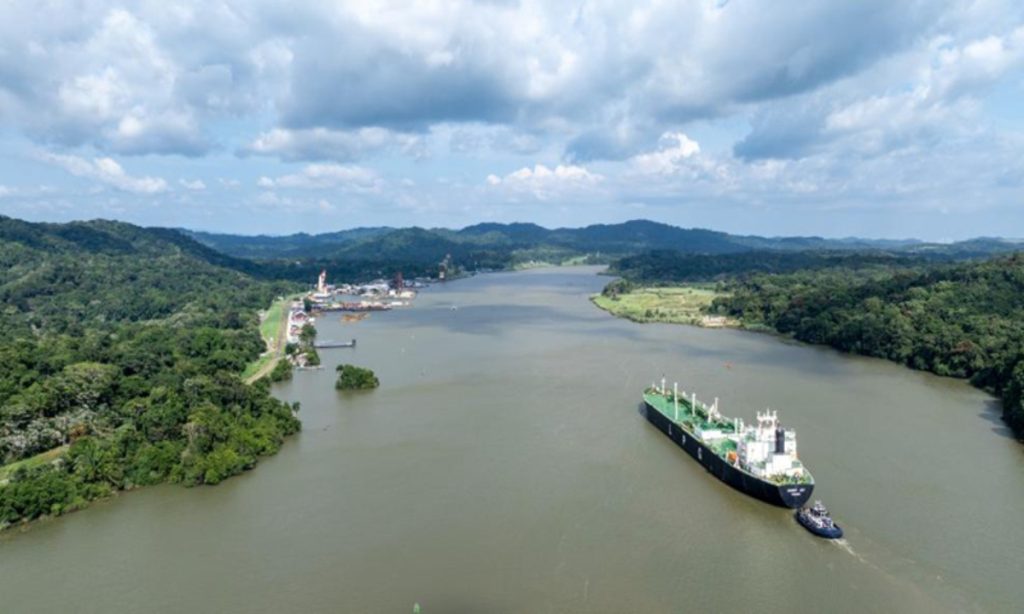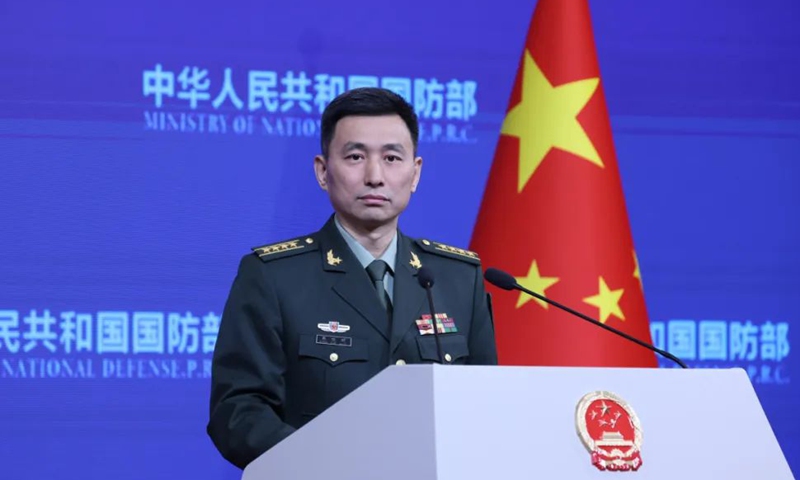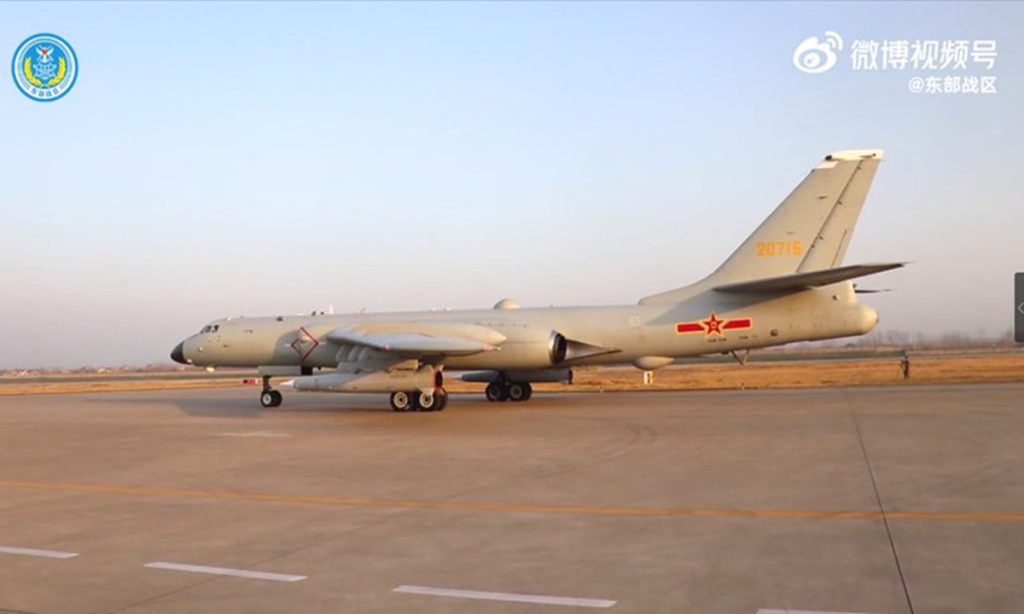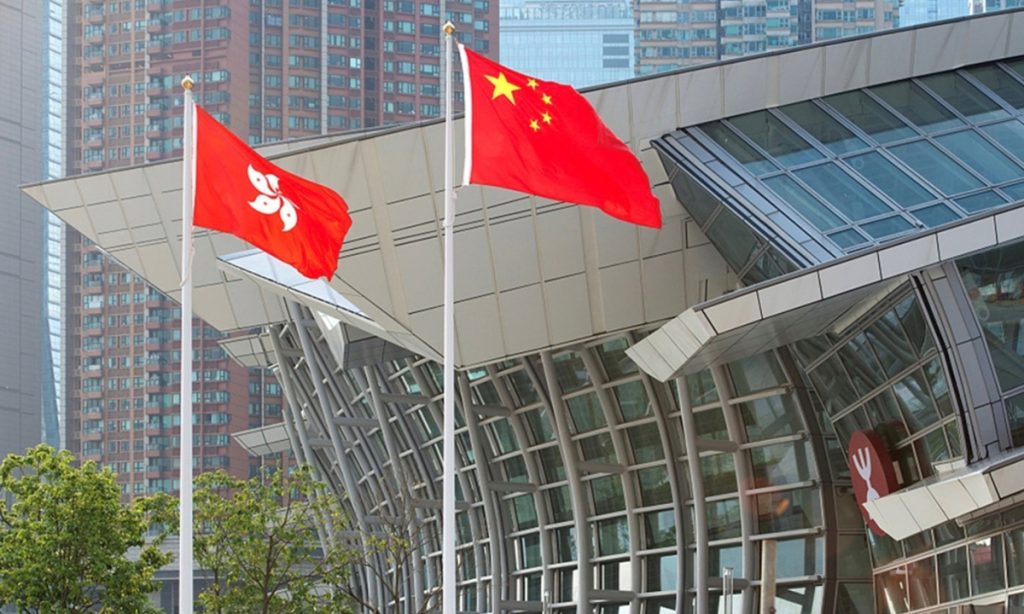Xi arrives in Phnom Penh for state visit to Cambodia, warmly welcomed by locals
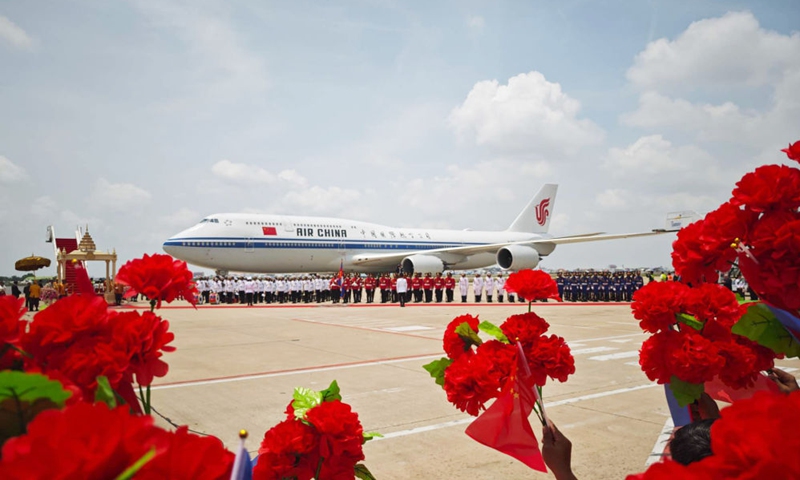
Chinese President Xi Jinping arrived on Thursday in Phnom Penh for a state visit to Cambodia, the third leg of his three-nation Southeast Asia tour which has already taken him to Vietnam and Malaysia, Xinhua News Agency reported.
To warmly welcome President Xi's arrival, Cambodia meticulously organized a special ceremony at the airport, with large enthusiastic crowds lining up neatly along the sides.
"We love China!" said Cambodian girls dressed in traditional white and red attire, standing among the welcoming crowds. They held golden cups filled with jasmine petals. The Global Times learned that this is a unique Cambodian tradition for receiving the country's most distinguished guests.
At the Phnom Penh International Airport, a Cambodian airport staff member told Global Times reporters that he felt very excited to be on-site to welcome President Xi. He said that China and Cambodia are "ironclad friends" and have always maintained close relations.
Along the bustling streets of Cambodia's capital, locals poured in from all corners of the country, spontaneously and with great excitement, just to witness this memorable moment with their own eyes. Although it coincided with the Khmer New Year, people arrived early in the morning, undeterred by the sweltering heat. Many told the Global Times that they had already been waiting along the roadside since around 6 am, determined not to miss a second of the occasion.
Beyond the main avenues adorned with rows of Chinese and Cambodian flags, reporters also noticed giant electronic billboards across Phnom Penh flashing warm messages in both Khmer and Chinese. Phrases like "Welcome President Xi" and "May the friendship between our two countries last forever" lit up the streets, adding to the festive atmosphere.
"We all knew that President Xi is coming to Cambodia. As a Chinese, I'm very proud and excited!" a 68-year-old restaurant owner surnamed Huang told the Global Times. "I hope China and Cambodia will continue to grow closer. The more Chinese tourists come, the better our business gets," she added.
President Xi said Thursday that China-Cambodia relations have withstood the test of global transformations, and always remained rock-solid. In a written statement upon his arrival, Xi also noted that bilateral ties were forged and nurtured by the elder generation of leaders of the two countries, Xinhua reported.
In his first overseas trip of the year, Xi is visiting Vietnam, Malaysia and Cambodia from Monday to Friday, according to the Xinhua News Agency. This is Xi's second visit to Cambodia in nine years.
"I sincerely hope this visit will spearhead progress in building a China-Cambodia community with a shared future," wrote a signed article by Xi titled "Together We Strive, Together We Thrive: Toward a Stable and Sustainable China-Cambodia Community with a Shared Future in the New Era" in Cambodian media outlets Khmer Times, Jian Hua Daily and Fresh News ahead of his arrival in Cambodia.

